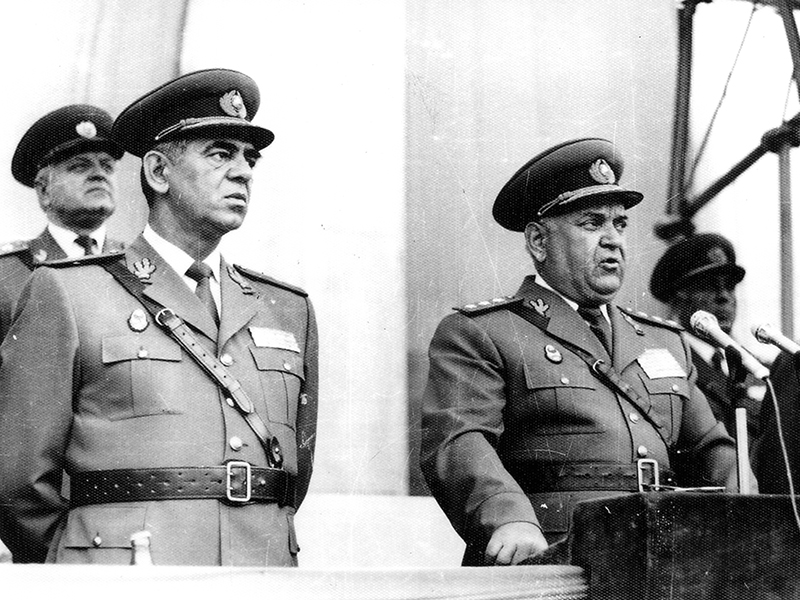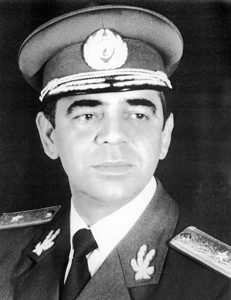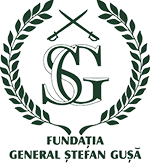Military career

At the risk of his own life
One of the most valued military journalists - col. George Basil – suggestively described the seven most difficult days of General Gusa. Among other things, he emphasized:
"During the 54 years that General Stefan Gusa gathered with hard work in an exceptional destiny, few days (seven) have propelled him in the Romanian history. Between the 17th and the 23rd of December, 1989 he was forced to take a decisions of great importance that had no precedent in the country, the army and his own life. The country and the army had boundless love for him. For them has he risked his life in each of these seven days, in a game of Russian roulette . In December 17th, when he arrived in Timisoara, there were gun fires.
Who initiated the situation and why were these events taking place still remains a mystery that the history should unfold. But he arrived, however, in time, to stop what was planned to become a massacre.
Between the anger of a dying regime and the rage of the crowd in the streets, his thought separated the eternity of the country from the interests of his temporary autocrat.
 <<We avoided a disaster – he told me – recovering the tanks from the hands of the insurgents from Timisoara, but we didn’t execute the orders of repression, and we didn’t arrest those in the Opera House.
<<We avoided a disaster – he told me – recovering the tanks from the hands of the insurgents from Timisoara, but we didn’t execute the orders of repression, and we didn’t arrest those in the Opera House.
In December 20th he went to “Elba”. God and his peasant spirit won. He ordered the army to go back into the barracks. Timisoara was a free city in December 20th. In the evening of the 21st, as the general stated himself: <<Some rushed to take a flight to Bucharest. For a moment, I had the feeling that they wanted to make me responsible for what others had done. But Milea called me and said: “Stefan, stay there and especially take care of you!”. I remained there. Only two days after, when I heard the news of his death, I felt loose and I went to Bucharest …>>.
Then came the famous <<Night of the Generals>>. It was a question of military aid for liquidation of the mysterious terrorists. General recalls:
<<I was told that people are dying. But I thought about how many died when we had foreign troops in the country and I refused any foreign intervention. Maybe I was wrong. Maybe I was too categorical …>>. The question is: can a man be charged when the entire history of people stands on his shoulders?
We have had several conversations with General Stefan Gusa. The last one was just before his departure to Vienna. He was seriously ill, but he asked me not to write about this. Now I consider myself released from that vow. Some journalists, who dig in dirt, jumped through the hospital window into his room, to win money from his great suffering. He had been sitting on his back and completely still during his last three months of life. But his mind and will were lucid and powerful. He put his hands together and said: <<God helped me. I feel like I don’t have power anymore. But, maybe He will give me some strengths and I will survive>>. Asked where does he think all come from, he said: <<Maybe, but I am not sure, it’s from that coffee ( the coffee served during the Night of the Generals). After I drank it I felt worse and worse. In the evening of December 30th, 1989 I met my family in Predeal and they could no recognize me. I left the hospital last year. I lied that I feel good and I left for an application. But I felt worse and worse. I went for one week to a clinic in Paris, to have some investigations done. The medical test results came from Vienna. God, what had I done wrong? I cannot blame anyone, neither Spiroiu, nor the doctors. I forgave everyone else >>.
His lungs were burning during the last meeting. He had 40-degrees temperature, but he read what I wrote, then said: <<Wherever you go, tell them all to value the Romanian army most, tell them that I don’t feel well and that it love them. >>
The life of General Gusa was played on the Russian roulette more than once. Ceausescu, if still alive, he could have sentenced him to death. The new power could send him to prison. Those who didn’t get, in December 1989, what they expected, unleashed a virulent press campaign against him. The tabloids were feeding with his sufferings. The foreigners appreciated him. The revolutionaries understood him. The army adulated him. Even if we want it or not, General Stefan Gusa entered into history. Many believe that he buried with him the solutions to all the enigmas in December 1989. On the contrary, I think he was a man like the others, but a man who transformed his existence into a lesson of dignity “- concludes the journalist quoted above.
General Stefan Gusa

Veroniki Holding
Dragan Group born in 1948, the year in which was founded ButanGas SpA in Italy. Today the Dragan Group has Veroniki Holding as its sole coordination structure, founded in 2010 by Dr. Daniela Veronica Gusa de Dragan.
Contacts
Intrarea Murmurului nr. 2, Sector 1, 014114 Bucarest, Romania
Tel.: +40 21 232 20 31
Fax: +40 21 232 20 40
office.fgsg@fundatiagusa.ro
© Copyright 2024 Veroniki Holding, Inc.
Adresă de corespondență: Intrarea Murmurului nr. 2-4, et. 1, Sector 1, București
